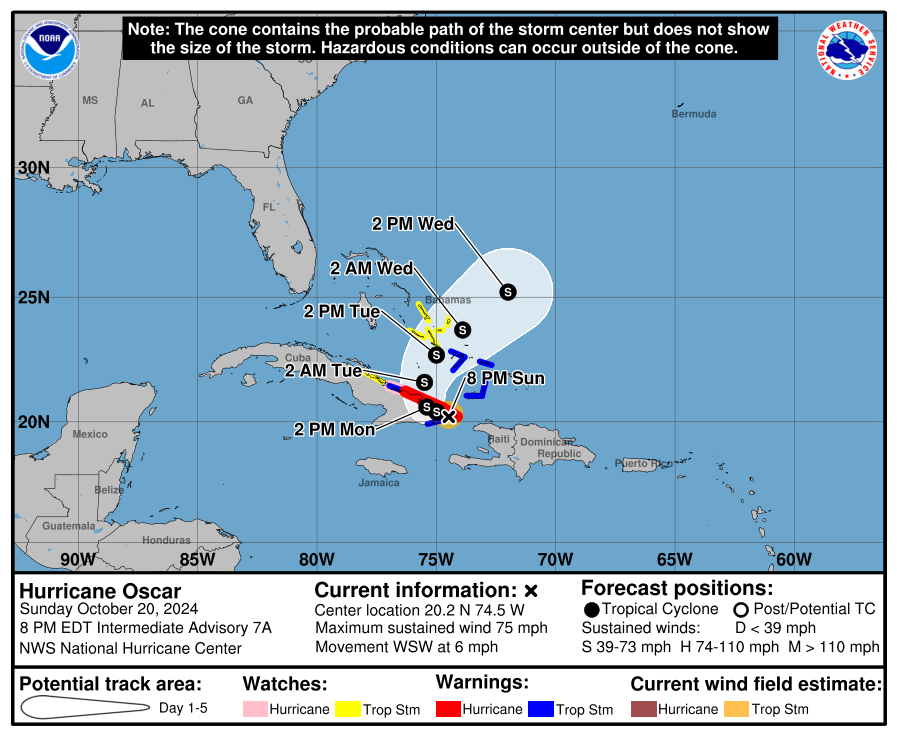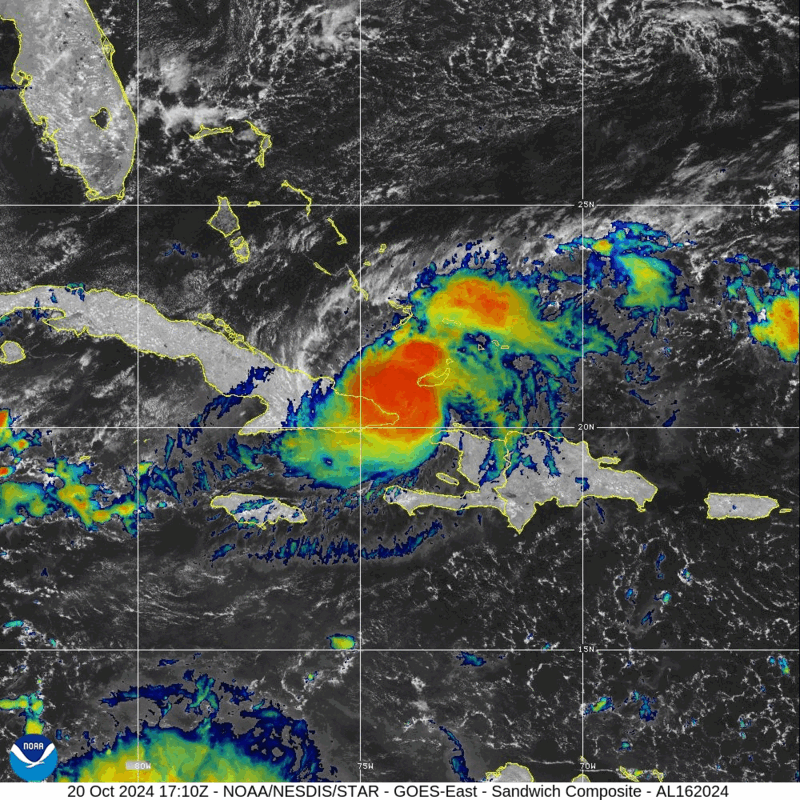Hurricane Oscar is an unusually tiny tropical system that is tracking on an unusual path since its nascent days when it developed off the west coast of Africa and had only a 20 percent chance of becoming a tropical depression — only to suddenly become a hurricane as it approached north of the Dominican Republic — and the landfall of tiny Hurricane Oscar occurred on the northern coast of the province of Guantanamo in eastern Cuba earlier today, Sunday, October 20, 2024 at approximately 5:50 in the afternoon.
Landfall of Tiny Hurricane Oscar: October 2024 Travel Alert
Maximum sustained winds of Hurricane Oscar — which is currently approximately 20 miles west of the eastern tip of Cuba and moving west southwest at a speed of six miles per hour — are at 75 miles per hour, which means that it is currently a minimal Category 1 hurricane.

The National Hurricane Center of the National Oceanic and Atmospheric Administration of the United States uncharacteristically described Hurricane Oscar as a “tiny” hurricane, whose landfall occurred as a Category 1 hurricane just north of the eastern tip of Cuba. The hurricane was so small that when it passed just north of the Dominican Republic, hardly any rain or wind affected the northern part of the country.

As small as Oscar was, it did not break any records: the smallest storm on record was Tropical Storm Marco, whose gale force winds only extended 11.5 miles from its center when it struck Misantla in Mexico on Tuesday, October 7, 2008.
Some airports in Turks and Caicos were temporarily closed.
After it grazes the northern coast of the eastern tip of Cuba, what will become Tropical Storm Oscar will then emerge back over water as it abruptly turns north towards the southern Bahamas before turning northeast out into the open waters of the Atlantic Ocean. The tropical storm is not forecast to become a hurricane ever again before it dissipates.
A Hurricane Warning is in effect for Cuba for:
- The north coast of Holguin and Guantanamo to Punta Maisi
A Hurricane Watch is in effect for Cuba for:
- The north coast of Las Tunas
A Tropical Storm Warning is in effect for:
- Southeastern Bahamas
- The south coast of the province of Guantanamo in Cuba
- The north coast of the province of Las Tunas in Cuba
A Tropical Storm Watch is in effect for:
- Central Bahamas
- The north coast of the province of Camaguey in Cuba
Significant precipitation of up to 18 inches is possible in across portions of eastern Cuba and the southeastern Bahama islands, which is expected to result in urban flooding and flash flooding.
A storm surge of as high as three feet above normal is expected to contribute to the aforementioned substantial flooding along the north shore of eastern Cuba.
Flight Waivers, Delays, and Cancellations
If you are traveling to or from the southeastern Bahama islands, eastern Cuba, or Turks and Caicos, expect delays and cancellations of flights. Keep up to date on the latest information pertaining to this tropical weather system which may adversely affect your travel plans. Better yet, postponing or canceling your trip might be a better option — no matter which mode of travel you plan on taking.
If you have a flight scheduled, your flight may be delayed or canceled — and you may be eligible for a waiver of a fee to change your itinerary. If you are driving in any of these areas, watch out for deteriorating weather conditions and traffic problems.
Here are three airlines which have issued travel alerts as a result of this tropical weather system:
- JetBlue Airways has issued a travel alert for Providenciales in Turks and Caicos for Sunday, October 20, 2024; and Wednesday, October 23, 2024 is the last day on which tickets must be reissued and rebooked travel must begin.
- Air Canada has issued a travel alert for Providenciales in Turks and Caicos for Sunday, October 20, 2024.
- interCaribbean Airways has issued travel alerts for Providenciales and Grand Turk with information pertaining to canceled flights.
Final Boarding Call
Be sure to contact your airline or transportation provider for the latest information pertaining to your travels — if they are adversely affected — and please: travel safely.

